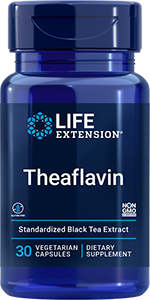| The American Association for Cancer Research 101st Annual Meeting 2010 held in Washington, DC, was the site of a presentation on April 18 concerning the finding of a protective effect of vitamins and calcium against breast cancer. Jaime Matta, PhD of the Ponce School of Medicine in Puerto Rico and his colleagues compared 268 Puerto Rican women with breast cancer to 457 healthy control subjects. DNA repair capacity (DRC), a biological process involving over 200 proteins, which, when disrupted, increases cancer risk, was measured in the white blood cells of all participants. Women who had breast cancer tended to be older, were likelier to have a family history of the disease, were less likely to have breastfed their children and showed reduced DNA repair capacity. Participants who consumed vitamin supplements were found to have a 30 percent lower risk of breast cancer compared to those who did not have a history of vitamin supplementation, and those who consumed calcium supplements had a 40 percent lower risk. “It is not an immediate effect," Dr Matta noted. "You don’t take a vitamin today and your breast cancer risk is reduced tomorrow. However, we did see a long-term effect in terms of breast cancer reduction.” The use of vitamin and calcium supplements was strongly associated with higher DNA repair capacity. Controlling the analysis for DNA repair capacity reduced the effect of calcium supplementation to an insignificant level, indicating that calcium likely exerts its protection against breast cancer via enhancement of DRC. “This process involves at least five separate pathways and is critical for maintaining genomic stability,” Dr Matta explained. “When the DNA is not repaired, it leads to mutation that leads to cancer.” The protective mechanism of vitamins against breast cancer observed in this study appears to be independent of DNA repair capacity. The study's findings, if confirmed, could help reduce the risk of an all-too-common cancer that is newly diagnosed in over a million women each year. “We’re not talking about megadoses of these vitamins and calcium supplements, so this is definitely one way to reduce risk,” Dr Matta concluded. | 
















